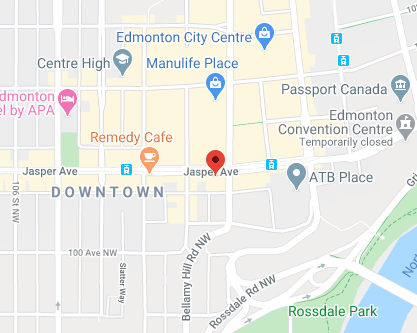Government increases financial requirements to host parents and grandparents in Canada
Government increases financial requirements to host parents and grandparents in Canada
Canadian citizens and permanent residents who wish to have their parents and/or grandparents visit them on a super visa will now have to meet higher income requirements.
As of 29 July, hosts under the super visa program must meet the following minimum income requirements based on the size of their family:
| Size of Family | 2025 Minimum income requirements | 2024 Minimum income requirements |
|---|---|---|
| 1 person (the sponsor) | $30,526 | $29,380 |
| 2 persons | $38,002 | $36,576 |
| 3 persons | $46,720 | $44,966 |
| 4 persons | $56,724 | $54,594 |
| 5 persons | $64,336 | $61,920 |
| 6 persons | $72,560 | $69,834 |
| 7 persons | $80,784 | $77,750 |
| More than 7 persons, for each additional person | $8,224 | $7,916 |
The host’s spouse or common-law partner can co-sign to combine incomes to meet this requirement.
Under the super visa program, parents or grandparents of eligible hosts can gain visitor status for up to 10 years, and can stay in Canada for up to five years at a time.
How is the income requirement determined?
The minimum gross income is based on the federal government’s Low-Income Cut-Off (LICO) criteria, which is adjusted annually.
This year, the increase was 3.9%.
How do I count the number of people in my family?
Per IRCC’s definitions, the following members must be counted towards a sponsor’s family size when determining the appropriate minimum necessary gross income through the super visa program:
- The sponsor;
- The sponsor’s spouse (including a separated spouse) or common-law partner;
- Dependent children of the host and of their spouse or common-law partner;
- Children who meet the definition of a dependent child must be counted, regardless of custody or child support arrangements
- The super visa applicant and any other super visa applicants applying at the same time (e.g., their spouse);
- Previously approved super visa applicants (super visa holders included in another letter of invitation, signed by the host or the host’s spouse or common-law partner that is still valid); and
- Previously sponsored individuals (people the host or co-signer has previously sponsored (or co-signed for) whose undertaking is still in effect).
Examples of how to determine family size
Example 1
Maria lives in Canada and wants to invite her parents to apply for a super visa. She is divorced and has two dependent children, with whom she shares custody with her former spouse.
To determine the number of family members, Maria must include everyone in her household count as required:
- Maria (the sponsor) – 1
- Her two parents (the super visa applicants) – 2
- Her two dependent children – 2
Total family members: 1 (Maria) + 2 (parents) + 2 (children) = 5 family members
Maria must have a minimum gross income of $64,336 to qualify to host her parents.
Even though Maria shares custody of her children, they still count toward the size of her family.
Example 2
Arjun lives in Canada and wants to invite his grandmother to apply for a super visa. Arjun is married, has one dependent child, and his spouse is already hosting both of their parents in Canada on existing Super Visas.
To calculate the number of family members for the application, Arjun must include everyone as follows:
- Arjun (the sponsor grandchild) – 1
- His grandmother (the invited grandparent) – 1
- His spouse – 1
- His dependent child – 1
- His spouse’s two parents (already in Canada on active super visas) – 2
Total family members: 1 (Arjun) + 1 (grandmother) + 1 (spouse) + 1 (child) + 2 (spouse’s parents) = 6 family members
Arjun requires a gross income of $72,560.
Example 3
Chinonso lives in Canada and wants to invite his two parents to apply for super visas. Chinonso is married and has one dependent child. He also previously co-signed the sponsorship of his former spouse’s parents.
To calculate the total number of family members, Chinonso must include:
- Chinonso (the sponsor child) – 1
- His two parents (the invited parents) – 2
- His current spouse – 1
- His dependent child – 1
- His former spouse’s two parents (from the previous sponsorship still in effect) – 2
Total family members: 1 (Chinonso) + 2 (parents) + 1 (spouse) + 1 (child) + 2 (former spouse’s parents) = 7 family members
Chinonso requires a minimum gross income of $80,784.
Even though he is now divorced, that sponsorship undertaking is still active and must be included in the family count.
How to prove income
As proof of income, Immigration, Refugees and Citizenship Canada (IRCC) accepts the following documents:
- The most recent Notice of Assessment issued by the Canada Revenue Agency (CRA);
- T4 or T1 forms for the latest tax year;
- Pay stubs covering the most recent 12-month period;
- Employment Insurance benefit statements;
- A letter from an accountant confirming annual income (if self‑employed);
- Evidence of other income sources (e.g., pension statements);
- A letter from the employer indicating job title, job description, and salary; and/or
- Bank statements.
What is the difference between the super visa program and the Parents and Grandparents Program?
The Parents and Grandparents Program (PGP) and the super visa program differ significantly in both immigration outcomes and availability.
Successful PGP applicants receive permanent residence (PR) status, allowing them to live in Canada indefinitely. Permanent residents may work or study without requiring a permit, and have the opportunity to qualify for health insurance in the province or territory in which they settle.
In contrast, super visa holders are granted visitor status for up to 10 years. They can stay in Canada for up to five years at a time, but are not authorized to work or study. In most cases, they will not be able to qualify for provincial or territorial health insurance.
Availability also varies greatly. The PGP operates on a lottery system that opens once a year for a limited time and is currently sending invitations to apply only to those who submitted interest to sponsor forms in the 2020 intake pool.
The super visa, on the other hand, is available year-round and eligible hosts and their relatives can apply directly at any time
To learn more about these two programs, visit our dedicated webpage on family sponsorship.



 Email
Email